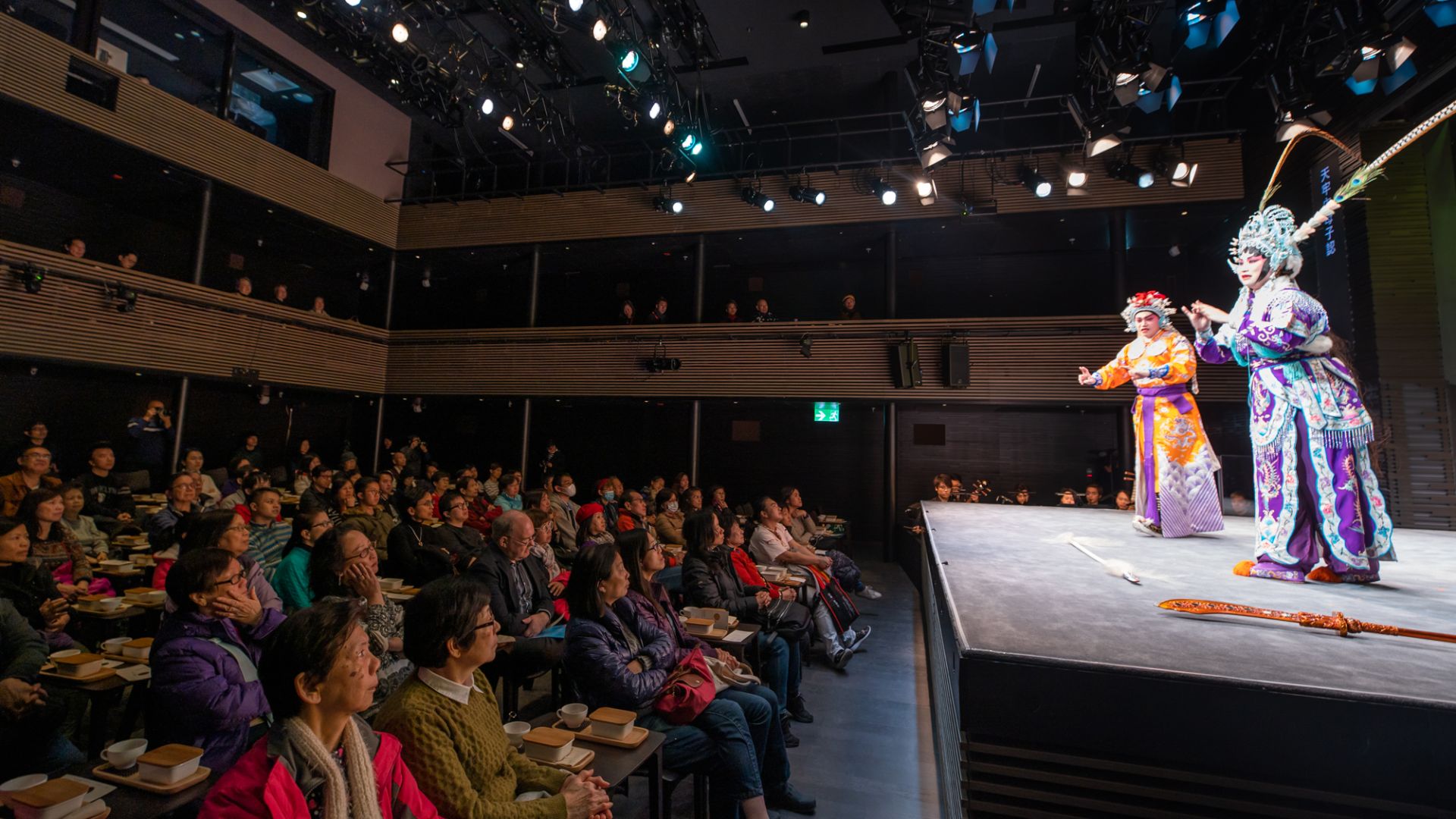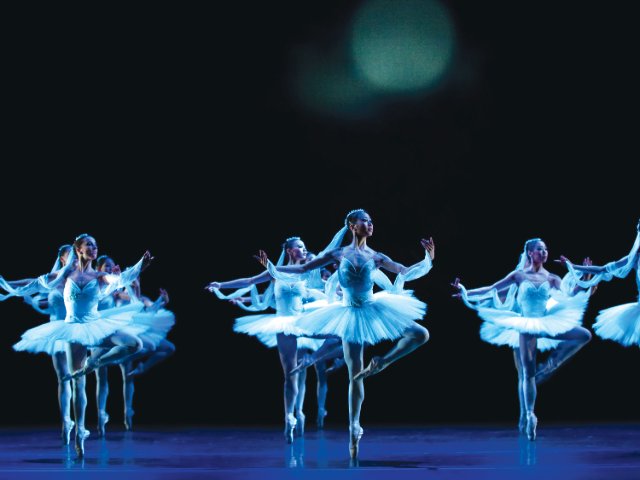
The opening of Xiqu Centre
{{title}} Address {{address}} Website {{website}} More info in 2019 spotlighted Cantonese and Chinese opera, and their role in Hong Kong’s vibrant cultural development. Located on the eastern tip of the West Kowloon Cultural District, this striking, architectural building which takes design cues from traditional Chinese lanterns is a physical representation of the art form.

Venture through the curtain-like entrance to the light, lofty atrium, which leads to a Grand Theatre, seating up to 1,073 people, and the more intimate Tea House Theatre, along with several studios. Xiqu Centre also plays host to film screenings, workshops, symposiums and the annual Chinese Opera Festival.

Photo Credit: West Kowloon Cultural District Authority
But long before Xiqu Centre opened, Cantonese opera — the colourful, theatrical performance of historic stories and legends sung in a striking high falsetto to simple musical accompaniment — has been enshrined in popular culture. Like its cousin Peking opera, it has always been an accessible performance enjoyed by people of all ages and backgrounds.

Photo Credit: Sam Chan
“People used to listen to it like we do pop music,” says Sam Chan Chak-lui, a professional Cantonese opera singer who performs at Xiqu Centre and other theatres around Hong Kong. “As Cantonese is our main language, Hong Kong is one of the best places to see Cantonese opera,” says Sam. Indeed the art form has a significant and enduring role in the city’s cultural evolution: it’s a mainstay of events and festivals, while hundreds of performances are held at theatres throughout the year. Officially recognised by UNESCO as an Intangible Cultural Heritage of Humanity since 2009, for Sam, Cantonese opera is a vivid history book recording the lives of the region’s people from over the last 100 years. And, unlike Western opera, with its superstar soloists and elitist reputation, Cantonese opera “is performed at local festivals, celebrations and even funerals,” says Sam.
Sam is supportive of Xiqu Centre’s spotlighting of Cantonese opera: “The centre has successfully drawn much attention from the public, and people are going to see the building. When doing so, they will immediately associate it with Cantonese opera,” she says.

This passion for her vocation is matched by a fierce advocacy of the art form: Sam believes Cantonese opera to be an important record of history and folklore tradition that should be passed onto future generations, and she is committed to teaching and recording materials with historical value. Cantonese opera is taught in schools by masters of the genre, while centres like Cha Duk Chang at The Mills hold fun, engaging children’s classes. For Sam, the more people embrace opera, the better. “Culture should be passed on from generation to generation, and every one of us plays a vital role,” she says.

Photo Credit: Sam Chan
So what can a visitor expect from a Cantonese opera performance? Well, hold onto your seat for a multi-sensory theatrical feast quite like no other. “As actors we combine singing, speaking, acting and acrobatic fighting,” Sam explains, and indeed a typical show is a thrilling spectacle. Vivid painted sets backdrop performances in which actors dressed in elaborate costumes and painterly makeup act out myths, legends and stories in a hyper-dramatic style with distinctive singing.

Photo Credit: West Kowloon Cultural District Authority
If the idea of sitting through a standard three-hour rendition daunts, fret not. Xiqu Centre’s Tea House Theatre hosts 90-minute shows by its Rising Stars Troupe. These snippets are specifically designed as an introduction to Cantonese opera, replete with narration and translation, plus tea and dim sum. Sam also recommends LockCha Tea House in Hong Kong Park, which stages Chinese Music Tea Concerts accompanied by their signature vegetarian dim sum. Bravo!
Apart from the Xiqu Centre, you can also find more information on Cantonese opera performances from the websites of the Leisure and Cultural Services Department and Chinese Artist Association of Hong Kong.
Dream of the Red Chamber
The operatic adaptation of the classic Chinese novel, which charts the love story between Jia Baoyu and Lin Daiyuof and provides keen observations of mid-18th-century life continues to enthral audiences some 200 years since the book was first published.
Di Nü Hua
Perhaps the most famous Cantonese opera, the emotionally charged tale of love and loyalty, Di Nü Ha was written by the late famous Cantonese dramatist Tong Tik-sang in 1957. The title has several meanings, including ‘The Emperor’s Daughter’ and ‘The Flower Princess’. Whatever the interpretation, they relate to the main protagonist Princess Changping, the last princess of the Ming dynasty (1368–1644).
Legend of the Purple Hairpin
Tong Tik-sang’s classic love story is one of the most popular and frequently staged Cantonese operas, featuring some of the genres best-known arias. The Tang dynasty (618–907) story charts the drama-struck relationship between female entertainer Huo Xiaoyu and poet Li Yi.
For more information about the Xiqu Centre and Chinese opera, see Discover Cantonese Opera in Hong Kong.
Information in this article is subject to change without advance notice. Please contact the relevant product or service providers for enquiries.
The Hong Kong Tourism Board disclaims any liability as to the quality or fitness for purpose of third party products and services; and makes no representation or warranty as to the accuracy, adequacy or reliability of any information contained herein.





